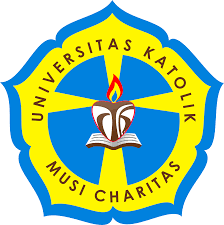PEMBERDAYAAN PEREMPUAN MELALUI USAHA BATIK TULIS: SEBUAH PENGALAMAN DARI PELAKSANAAN PROGRAM IPTEK BAGI MASYARAKAT (IBM) DI KABUPATEN SLEMAN, YOGYAKARTA
Abstract
Science and Technology for society (IbM) is one of the community services focused on the implementation of science and technological advances from the university to enhance the technological insight and skill of the society. The program is carried out in terms of community service and study on the technological advances of the university. The target of this program is the public as a whole, ranging from an individual, group, community, to some instances in both urban and rural areas. The program is offered to the university in particular towards lecturers and research centers by Directorate of Research and Community Service (DRPM) and Directorate General of Research and Development Strengthening of the Ministry of Higher Education Research and Technology, Government of Indonesia in terms of research grant throgh research proposal application to be selected. This is conducted in order to realize the new paradigm of community service by the university namely solving the problem, comprehensive, totally meaningful,and sustainable with more multiple targets. In 2016, the author recieved the grant and used it for research. Since one of the requirements of the target audience of this program is a group, the program is conducted towards IbM on a group of women artisans of handmade batik Canting Merapi and Fiber Merapi, which was established in 2013, through the program of Life Skills Improvement (PKH) Oriented on Women Empowerment hosted by the Center for Gender Studies, Islamic University of Indonesia (UII) in collaboration with the Directorate of Research and Community Service (DPPM) Ministry of Education and Culture (Kemendikbud). The group was selected for the sake of sustainability and also because the group has the potential to grow with its distinctive motif pattern of scarce flora and fauna that only grows on the slopes of Merapi. In addition, the resulted batik is also environmentally friendly since it does not use any synthetic dyes but only natural dyes. Therefore, this article will elucidate the women empowerment programs that have been carried in particular both the method and aspects of priority issues to be resolved. The activities are carried out by community empowerment (Participatory rural appraisal). While the two priority issues to be resolved are the aspects of production and management. The Aspect of production is solely focused on raw materials, motif design, and production equipment. Meanwhile, the aspect of management is closely related to venture capital, financial management, sales, marketing, and human resources skills.















_1.png)




